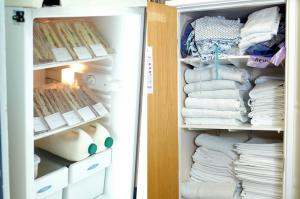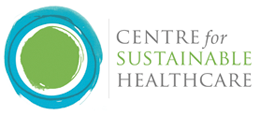- Group home
- You must register/login in order to post into this group.
Carbon Reduction at a Renal Unit through Sustainable Action Planning

By: Royal Cornwall Hospitals NHS Trust
Clear improvement in patient experience with 50% less waiting, fewer aborted journeys and more self-care, an improved workplace for staff with more time to look after patients and better attendance, a reduction in healthcare acquired infections.
£57,528 (Actual)
36.545 kg CO2e (Estimated)
Using a classic resource efficiency method the team at the Renal Unit during three two hour workshops quickly identified carbon reduction opportunities, prioritised them, and moved into action. Led by Renal Unit Manager Simeon Edwards the team took the action plan developed in these sessions and integrated it into the normal management of their unit for continues improvement. The carbon reduction actions are now regularly reviewed and updated as part of normal unit management. Resource efficiency tools are used as needed to get to the root of issues, identify possible actions, and to manage change positively.
Actions
Simple actions were attempted first:
- Waste sandwiches were reduced from 35% to <5% by involving patients in establishing a new sandwich menu, improving choice and avoiding costs of £4,000.
- After full consultation with patients, linen use was reduced by 70%. Some patients preferred to bring their own blankets, and the unit stopped using white sheets for patient’s chairs. Avoided costs £4,800 and quite a good carbon saving too.
- Encouraged by this success the unit team decided to tackle aborted ambulance bookings, aiming for zero %. The team worked with the ambulance service to synchronise treatment times. Within a few months the cost of aborted journeys reduced from £1,500 a month to £400, giving annual savings running at £13,200. After two years it is ‘zero’.
- To reduce stress in the workplace the team undertook an analysis of the balance between staff availability and the peaks and troughs of patient activity. This led to some rescheduling which released more time to care, leading on to best practice in infection control, and improved staff attendance.
- A renal unit uses a considerable amount of disposable kit and pharmaceuticals. Bicarbonate cartridges were changed leading to a reduction in both packaging and chemical. Cost avoidance now running at £11,000 p.a. Work is ongoing with manufacturers to reduce wastage of haemodialysis fluids. Dressing packs have been slimmed by a ‘lean’ analysis saving £800 p.a. Renal disposables wastage of 5 dialysis sets per week has been reduced to zero by not setting up machines in advance. This amounts to a saving of £13,000 p.a. By changing direct delivery of renal lines to ‘Blue Diamond’ supplies, topped up from NHS stores Bridgewater, costs of £5,900 are being avoided.
- Cardboard for recycling was reduced by 65% when Fresenius 5L containers were switched to pallet delivery, instead of 4 to a box – avoiding the waste in the first place.
Carbon Savings (section updated November 2012)
Cost avoidances have been used in conjunction with the 2012 Guidelines to Defra / DECC's GHG Conversion Factors for Company Reporting, Annex 13. This enables a CO2 equivalent figure to be readily derived from cost figures to give staff an approximate idea of what they are achieving in carbon terms.
|
Sic code |
Category |
Cost avoided p.a. |
GHG Total kg CO2eq per £ |
Kg CO2eq |
|
|
Sandwiches |
15 |
Food & drink products |
£4,000 |
0.97 |
3,880 |
|
Bicarb cartridges Dressing packs Dialysis sets Supply of renal lines |
24.4
24.4 24.4 24.4 |
Pharmaceuticals
Pharmaceuticals Pharmaceuticals Pharmaceuticals
|
£11,000
£800 £13,000 £5,928 |
0.43 |
13,213 |
|
70% linen reduction
|
55 |
Hotels, catering, pubs etc |
£4,800 |
0.59 |
2,352 |
|
Aborted ambulance journeys |
602 |
Road transport |
£18,000 |
0.95 |
17,100 |
|
TOTAL |
|
|
£57,528 |
|
36,545 |
Royal Cornwall Hospital, Treliske, Truro, Cornwall, TR1 3LJ
To save resources
Workshops were facilitated by Eco-nomic Ltd
Next Steps:
- Energy efficiency in heating is problematic. The unit has a summer average of 26C, too hot for staff comfort but chilly for patients undergoing dialysis. No ideal solution as yet, but the team continues to work on it.
- A switch off campaign is underway. The team aim to reduce existing lighting by 25% by removing some lighting tubes. The equipment store awaits its light sensor.
- Also still to come is the opportunity to reuse reverse osmosis waste water in toilets, as has been done at Canterbury, and other treatment improvement options.
- Further recycling opportunities will also be explored. Indeed by year 2 recycled cardboard had been reduced by 65% by ‘not creating the waste in the first place’.
- With renal cases increasing at 6% p.a. another big opportunity is the introduction of a self-care programme for renal patients. Benefits include the chance for patients to contribute to their own care at any level and gain control, less dependence on nursing staff, and the possibility of home treatment. All this will promote patient psychological welfare, but it has clear implications for carbon reduction too.
